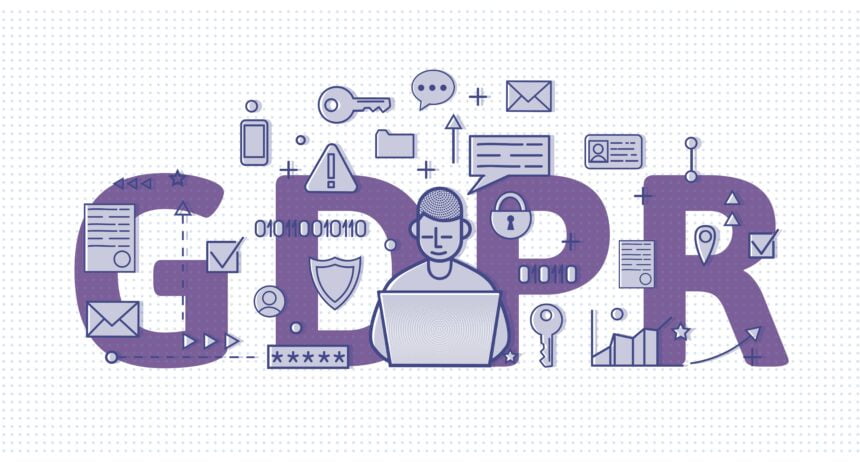General Data Protection Regulation (GDPR) compliance, due by May 25, 2018, is prompting many industries to adjust their operations. Businesses are hastily making changes to how they process, store and protect their customers’ data.
Marketers are showing due diligence in ensuring their data usage is transparent enough to comply with GDPR and avoid hefty fines. Internet users are becoming more familiar with notices popping up on their favorite websites with an explanation of data rights and how they use the data.
The GDPR, adopted by the European Parliament in April 2016, replaces data protection standards from 1995. In doing so, GDPR’s presence will impact businesses and marketers perhaps more than any industry.
The regulations’ primary emphasis is the handling and storage of personal data, including information like names and home addresses.
U.S. marketers who deal with E.U. customers (as most do) must provide specific instructions to gain consumer consent, which per the GDPR must be “freely given, specific, informed, and unambiguous.”
If a company fails to comply with GDPR, they can receive fines of up to four percent of their global turnover. The threat is enough to prompt a shift across multiple industries. Naturally, as a result, the regulations will also have an impact on remote teams and how they work.
GDPR Compliance and Remote Teams
GDPR’s primary requirements include requiring consent for data processing, anonymizing collected data, providing data breach notifications and safely handling data transfer.
As TechRepublic explains, consent is only valid under GDPR if:
- Consent is freely given.
- Consent is specific, per purpose.
- Consent is informed.
- Consent is an unambiguous indication.
- Consent is an act: It needs to be given by a statement or by a clear act.
- Consent is distinguishable from other matters.
- The request for consent is in clear and plain language, intelligible, and easily accessible.
Remote workers often have involvement in at least one of these areas, so it’s important not to overlook the potential impact. Many organizations work with freelancers, contractors or other employees who work from home.
GDPR will prompt these organizations into mitigating information-related risks due to fear of receiving hefty fines or coming across as untrustworthy to consumers. A business should have a protocol for which information may or may not undergo utilization or access outside the office.
Additionally, personal email accounts pose a security risk that may not comply with GDPR’s standards of data protection. GDPR may prompt businesses into investing more into a secure company intranet, their own IT equipment and secure email.
Businesses will also strive to ensure that remote workers retain information management practices once outside the office.
Some remote workers lack information management skills with security in mind if they are mostly familiar with working from home and not inside an office setting. Organizations should, in turn, have the remote worker undergo a training program to normalize responsible information management.
Challenges to Small Businesses
As Natasha Andrews in her article on The Privacy Advisor, small businesses will have a harder time meeting the GDPR standards.
“Small firms typically lack the resources and expertise required to effectively prepare for the regulation or indeed assess the impact that it may have on their operations,” she says. “As a result, these firms are unable to allocate the sufficient resources to manage these projects, with the assigned individuals typically juggling this responsibility alongside their day-to-day tasks. This consequently has an impact on the firm’s ability to impart the importance of data protection to the organization.”
Yet, it’s often small companies that rely heavily on the expertise and budget-friendly pricing of freelance or contract remote workers.
On the other hand, larger companies, because they generally already have some kind of compliance or security team in place, are likely to handle the changes much better.
Andrews notes that, because large businesses have more money, they can simply hire the professionals they need to ensure that they understand and comply with the GDPR regulations:
“[W]ith readily-available funding at hand, some firms are choosing to simply buy-in the necessary expertise. As such, these larger firms are well positioned to interpret the often complex wording of the regulation and construct cohesive action plans to comply with their legal obligations.”
Thus, for larger companies that work with remote employees, making sure they meet GDPR standards is as simple as hiring a person or team to put those standards in place.
Information Security Is Vital
Successful information security for remote workers entails several fields of focus. Firstly, it’s important to provide practical policies that keep the remote work environment in mind. For example, remote workers should value security for their personal computer in case a roommate or family member deletes or accesses sensitive data.
Additionally, it should be very clear which records should never leave the office, even in the form of digital content.
Ideally, businesses will have a plan in place to prevent certain data from even leaving a secure intranet. Essentially, the remote workers should value their role as an information owner and handler, with any breach of access their responsibility.
Companies and employees may have to install new kinds of software on their computers to ensure security and compliance.
For example, Time Doctor enables businesses to track remote employees via time tracking and screen capture. Such apps are practical for a business with remote workers striving to comply with GDPR.
In addition to tracking remote teams, organizations can enhance the security and effectiveness of remote work by communicating expectations clearly, setting expectations for how and when to communicate and having a standard system of organization can go a long way in ensuring GDPR compliance and efficient work output.
Remote workers are one of many niches in tech that will be profoundly impacted by GDPR.
Fortunately, compliance with GDPR can elevate businesses to a more secure and efficient place than before as they implement protocols and training for remote workers that can build upon existing skills.






